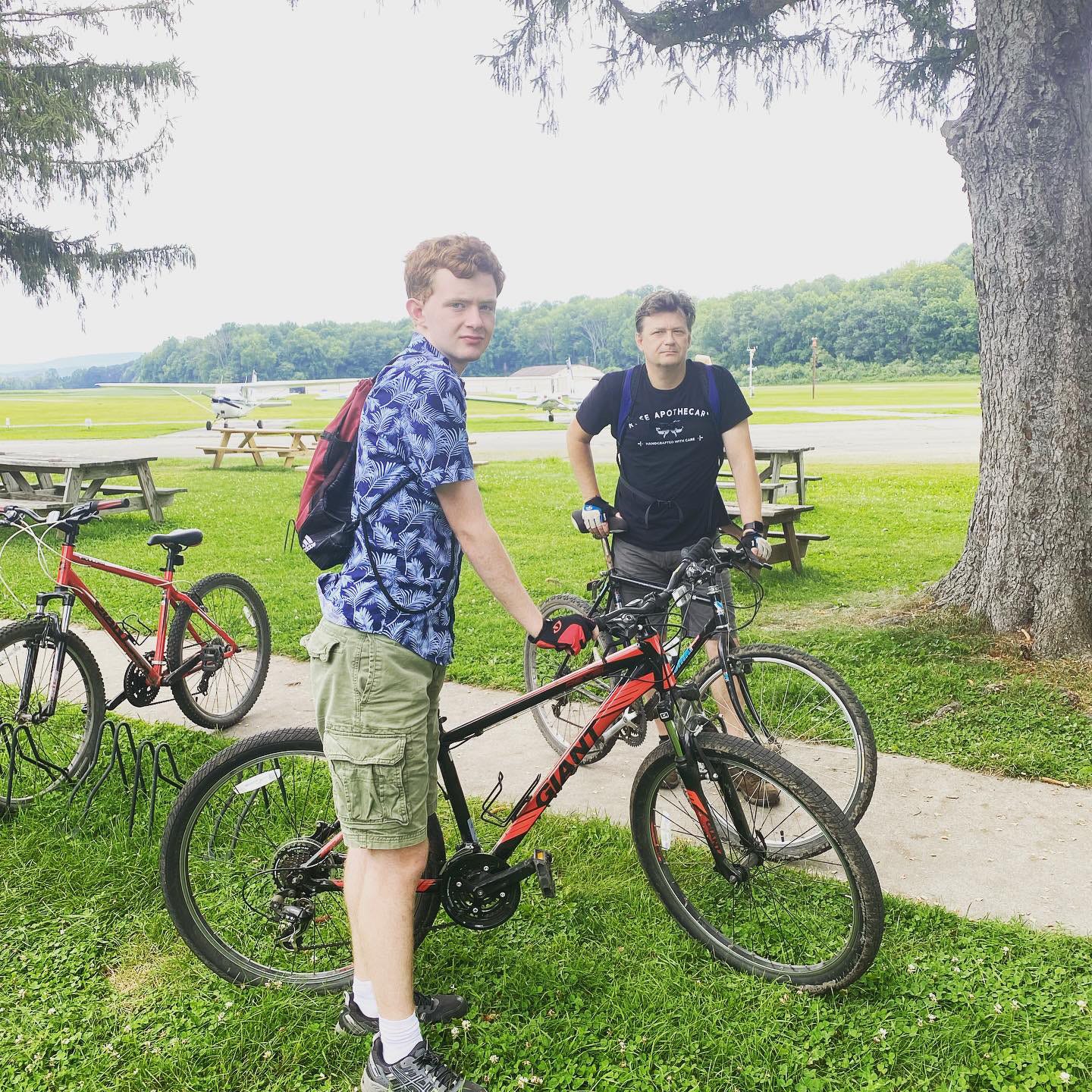Photo by Donald Giannatti on Unsplash
About a month ago, a Facebook friend posted a message: “Both kids are now in college, so John and I are traveling for two weeks in our new tear drop camper. Woot!” There might have been an emoji or two with fireworks and popping champagne bottles. I immediately googled, “tear drop camper” and fell in love. They are little bedrooms with kitchenettes that you drag behind your car. So cute!
With my imaginary camper, Steve and I would travel through remote areas of the Pacific Northwest meeting off-beat characters in local pubs and sleeping in the shadows of fantastic mountains. I would suddenly be ten pounds lighter, my wrinkles gone. But a camper that only fits two people is not in our future. Because Ian is not going to a four-year college with a smooth transition to a middle class job and apartment with buddies. We may never be a joyful empty nester like my Facebook friend.
I made peace with our alternative family life long ago, but every once in a while I get these pangs of jealousy. This spring, I swallowed my disappointment about being denied one of those miracle campers and put my work aside to learn about adulthood and disabilities.
I know a hell of a lot about the middle class parenting highway — good high school, SATs, after school activities, college tours, reach schools versus safeties, college essay, majors, shopping for professors, first jobs and so on — but prior to this spring, I had very little knowledge of those remote roads off the highway for people who don’t attend college and have challenges that prevent them from getting a job as an electrician or plumber. So, I spent months talking to tons of people, sometimes paying experts, to learn what happens after high school for young adults with high functioning autism.
The first step was to take care of the legalities, so we paid a lawyer thousands to handle guardianship, a special will, and a special needs trust. I have not yet tackled the social security paperwork, which I'm hoping to do on my own without a lawyer.
Then, we paid for evaluations to show that Ian’s autism issues were significant enough, even though he technically completed all the academic requirements for graduation, so the district would have to continue to educate him for another two years. If you do not let your child truly graduate from high school (they can march with the other kids, but won't get an official diploma), they qualify for services from their public school until age 21. Other special ed parents instructed me not let a child with an IEP graduate from school, because there’s nothing else out there.
Ian will attend the town's 18-21 program, where they will work on his social skills, provide a job coach for local jobs, and help him gain greater independence. These programs were originally set up for kids with intellectual disabilities to learn to bag groceries, but they have had to expand their mission as more parents keep their kids with IEP in school. Ian will take two computer science classes at the community college at night. We're also in the process of forming a group of other young adults in the area that can meet up at the movie theater or the pizza parlor.
All this is going to require a lot of coordination from me, but it should be easier than dealing with the part-time pandemic education. If this plan is too much work for me, and Ian isn’t making enough progress, then we might send him to a residential program, where he’ll get all that -- job training, community college, weekend social events -- plus experience living on his own at a dorm. Those programs are not cheap, but we'll do it if necessary.
While we might not be joyful empty nesters like my Facebook friend, we are having fun just the same. Ian is our permanent plus one and joins us on all our adventures to museums, bike trails, and camp sites in upstate New York. He’ll eat most foods and likes to travel to new places. The challenge to keep him amused and stimulated keeps us from getting bored.
Is Ian on the road to greater independence? Will this program improve his autism issues enough so he can blend into a workplace? Can he get the right computer training at the local community college? Will a workplace some day take a risk on a young man who is unable to chit-chat and can’t drive a car due to his epilepsy? Can he earn enough money at a future job to be independent? All of that is a deep unknown for us. Most days, I’m cool with that uncertainty and am just enjoying the adventure.
LINKS
It’s a slow work month for me, because of the parenting issues described above. I’ve been posting pictures of our adventures and family moment on Instagram.
On the blog, we’ve been talking about vaccine mandates and pandemic bureaucracy fails.
I just subscribed to bunch of new NYT newsletters.
Loved this article about an enslaved potters’ unusual pottery.
I’m just sick about the on-going evidence that remote education harmed children. Dana Goldstein’s article about the Kindergarten Exodus is heart breaking.
I’m fascinated with huge media deals, like Reese Witherspoon’s $900m deal for her media empire. How do I get one of those media empires?
Right now, I should be gearing up for the big “back to school” articles, but the parenting stuff is a lot right now. If the Delta variant stays in check around here, and the schools open normally, I should be working normally on September 1st. Counting the days.





